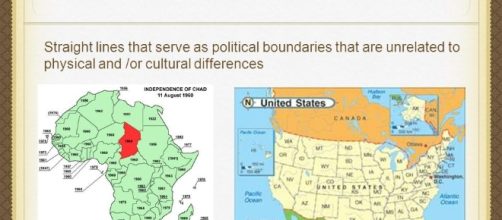Have you ever wondered why Borders exist within society? Especially if you consider the significant role human migration has played in the advancement of society, science and technology. The numerical system the world uses today would not have existed if it weren't for migrants from Muslim nations, the democratic process we use as base for our own democracy come from Greece plus much more.
Borders are political boundaries that have been created by individuals or groups that have gained wealth and subsequently power over a population. The earliest form of borders as we know them were created by the Roman Empire to create order within the serfdom.
In ancient Greece, the Delphic priests regarded unfettered movement as one of the four freedoms distinguishing liberty from slavery.
The failures of borders
Throughout history, every time a social order died out and new one was born, the leaders and those in power at the time ensured that borders remained to increase the power of a state. In the early renaissance period, a social order founded on wage labourers emerged and the governments continued to impose borders around nation states because people were considered wealth and a valuable workforce to be kept within those borders.
This continues to this day, when politicians talk about migration and the effects on a nation, they rarely focus on the human and social impact but the economic impact.
Migration is viewed as tool to gain wealth for those who already have power. Furthermore, borders have been used and drawn up throughout history to divide and conquer specific nations throughout the world. The European colonisers have often created borders, in particular in Africa, to control a population and extract resources from those nations. But whenever they have drawn borders, they have failed to consider the geopolitical aspects of the region and this has left many African nations fighting bloody battles after the coloniser left, most of which continue to this day.
The Democratic Republic of Congo (DRC) is a prime example of the serious implications that the drawing of artificial borders can do and because of its significant deposits of valuable minerals and natural resources, it has been a victim of exploitation from outsiders.
The DRC has been the most underreported warzone in the world, since the late 1990s, 6 million people have been killed with estimates suggest children under 5 accounts for 50% of the deaths. The country was formed under colonial rule of the British and the French but it was left weak and divided when Belgium withdrew in the 1960s, after years of bloodshed and extractions of its natural resources.
Geopolitical and power purposes
There are a significant number of countries that have expanded their boundaries and borders for geopolitical purposes. Sections of land that provide a significant advantage over the defence, offence and the ability to trade for a country. This is the reason why Russia annexed Crimea, China continue to dominate Tibet and the US bought Alaska off Russia and forced France out of New Orleans.
These were vital lands to extend their borders to expand their powers and secure their wealth.
The artificial creation of borders is used to gain power and wealth, it is suggested that they are a result of peace and this notion is somewhat true however, they are largely a result of greed and control. The desire to control a population often precedes the creation of borders and colonisation in Africa is a key example how borders are used to divide and rule populations in the pursuit of wealth at the expense of human life.

